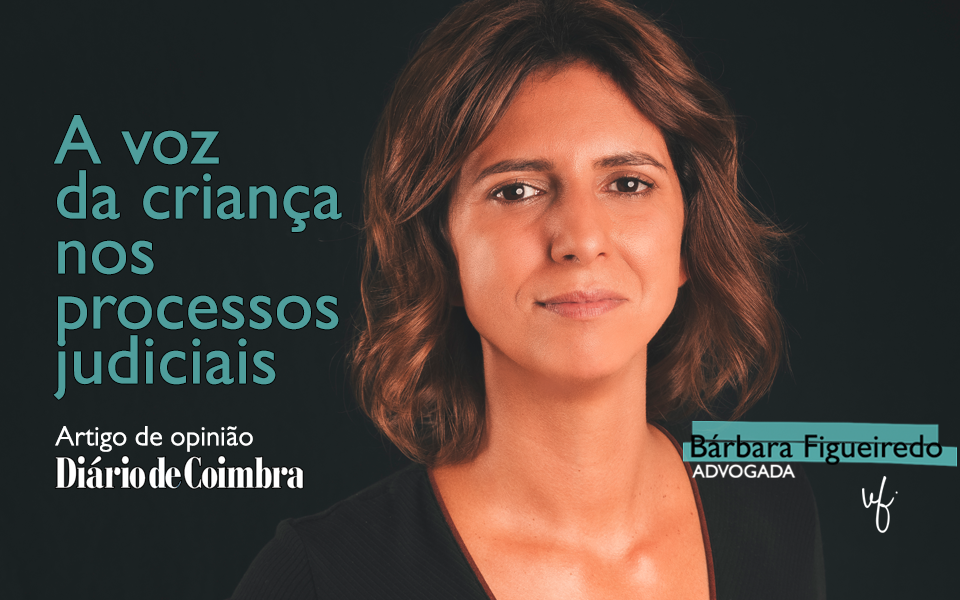The Voice of the Child in Judicial Processes

July 18, 2024
Opinion piece by Bárbara Figueiredo published [in Portuguese] in the Diário de Coimbra newspaper
While there were times when a child’s opinion held little value in making life-determining decisions, the current trend is the exact opposite. Nowadays, children are viewed as true rights holders, including the right to express their opinions in processes that concern them.
This is evident from the United Nations Convention on the Rights of the Child, dated January 26, 1990, which states that “States Parties assure to the child who is capable of forming his or her own views the right to express those views freely in all matters affecting the child, the views of the child being given due weight in accordance with the age and maturity of the child.” Similarly, the Charter of Fundamental Rights of the European Union, in Article 24 (under the heading Rights of the Child), provides that children may express their opinions freely, which will be taken into consideration in matters affecting them, according to their age and maturity.
In domestic law, this right is explicitly enshrined in paragraph c) of Article 4 of the General Regime of Civil Tutelary Process, which establishes the general principle, later concretized in other norms, that a child capable of understanding the matters under discussion, considering their age and maturity, must always be heard regarding decisions that concern them. Article 35 of the same statute, relating to the parents’ conference in procedures for regulating parental responsibilities, states that a child over 12 years old, or under that age but capable of understanding the matters under discussion, considering their age and maturity, must be heard by the court unless their best interest advises against it.
Thus, any decision concerning the child’s life must be preceded by a hearing by the court, provided the child is over 12 years old or under that age, as long as their maturity and capacity for understanding allow it. It is important to emphasize that this principle is based not on a possible need for evidence by the court, but on a true right of the child, as a rights holder, to have a voice in the process, to express their opinion, and for it to be duly considered by the court, even if it is not binding.
It follows from the above that the rule is to hear the child in all processes concerning them before any decision affecting their life is made, and this hearing should only be dispensed with when their best interest advises against it (considering their immaturity and inability to understand the issues under discussion). In these cases, where the child’s voice is silenced, the decision must be duly justified.


